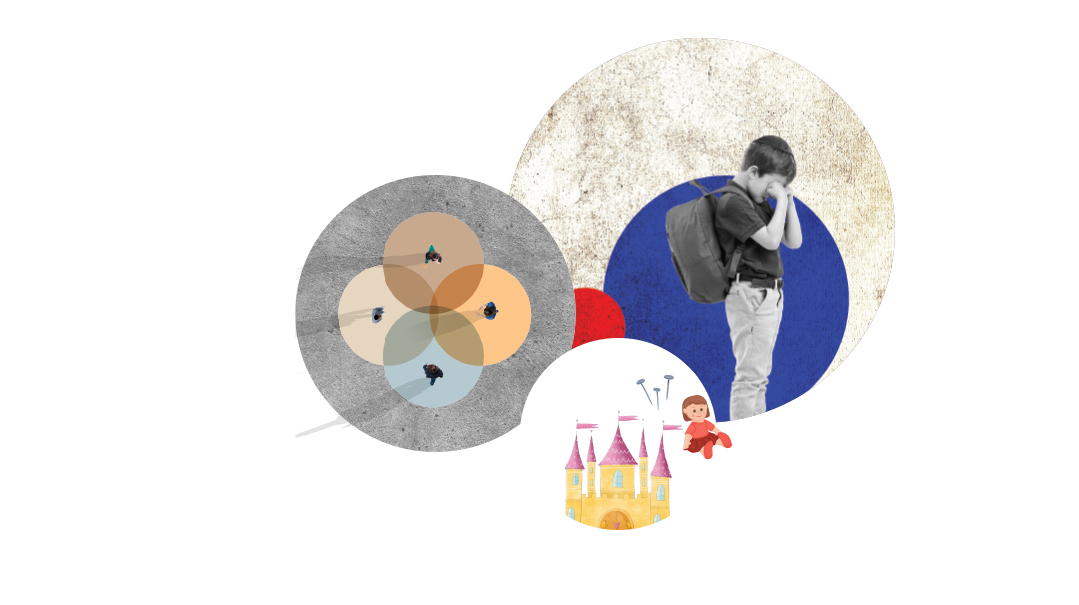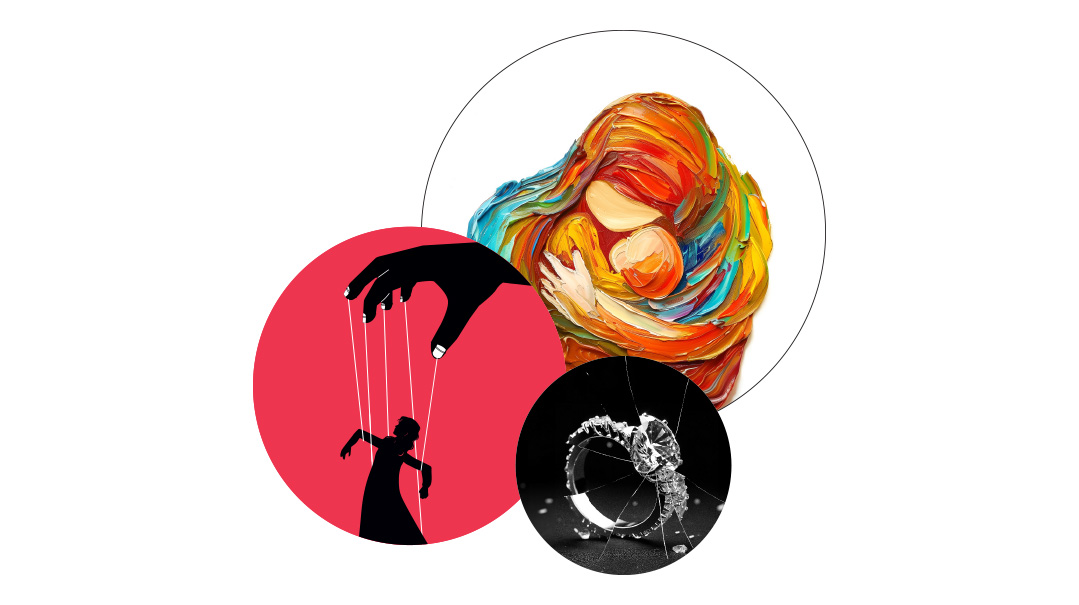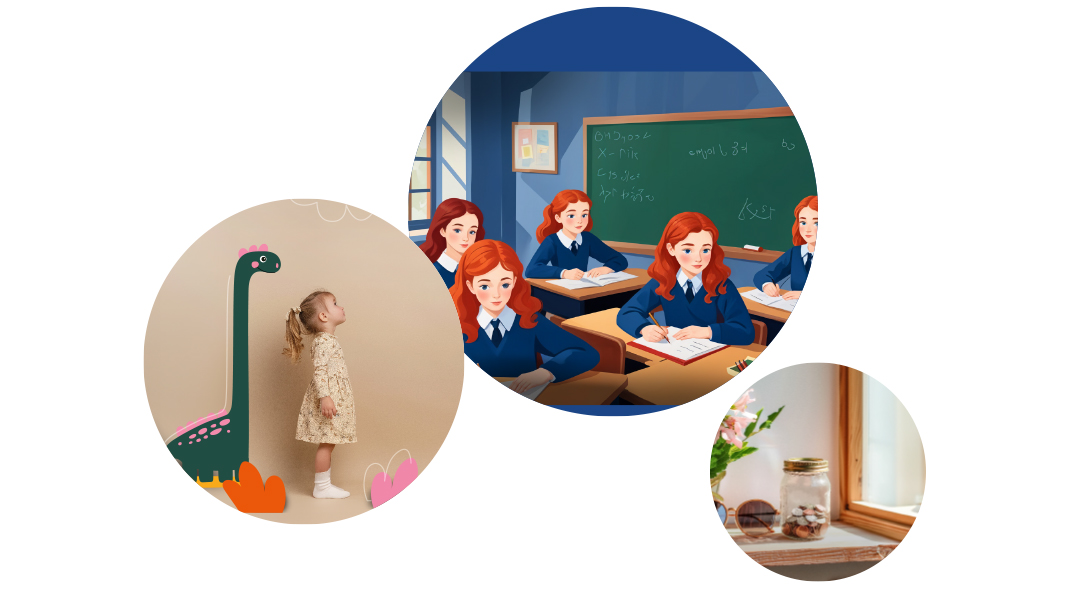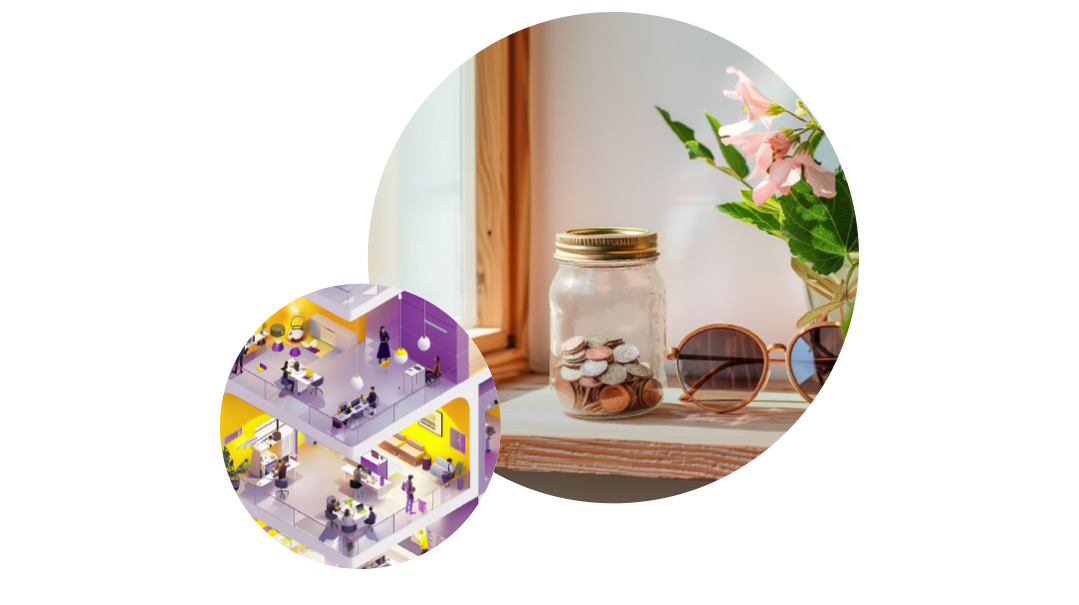Family First Inbox: Issue 871

“So much can be accomplished when the bystanders and victim are aware of their power to change the class dynamics in a real way”

Keep Us in Mind [Firetrucks and Frills / Issue 869]
Dear Hadassah,
Do you have a five-year-old? I have a four-year-old daughter who would fit right in with your family. Kindly keep us in mind when your children grow up.
At 18 months, my daughter managed to reach the scissors on the basement windowsill. I couldn’t figure out a higher place to keep them. (What’s higher than right near the ceiling?) A scissors ban would have been great. Why didn’t you suggest it? Where do you keep your sharp knives? The top cabinets in my kitchen don’t really cut it.
Since my husband isn’t a paramedic, we have “our” stitches doctor. He’s more than happy to help us as needed, though my wallet ain’t so happy about it. Go you (I mean, the hypothetical person in your example) for marrying a paramedic!
A tip for life: Choose your friends wisely. When my daughter could reach the ceiling, and my same-age niece couldn’t climb out of her carriage (forget about crib), I didn’t look to her mother for advice.
My friend who has children of both genders explained to me that boys are easier because with a son she’s able to yell, “Get back in your seat!” when he lands in the trunk of their minivan, and sometimes it works. When it’s a daughter, she’ll just sit in the trunk and cry if you yell. That’s something to think about when you’re tired.
May we all have lots of Yiddishe nachas!
Note: I withhold my name because of the shidduch crisis. But if you have a son aged five or under who isn’t busy, please reach out to me via Family First.
A Mother Starting Inquiries Early
My Kids Look Tame [Firetrucks and Frills / Issue 869]
As a fellow boy mommy, I must thank Hadassah Swerds for the constant chizuk in the form of her very well-written articles. Just when I think my boys have done it all, we are treated to a laughter-filled read about the Swerds’ clan. Hadassah, your boys make mine seem tame!
When my friends think the stories coming out of our circus must be fiction, I can rely on the Swerds to one-up my kids and prove my stories true.
Thank you for the laughter and validation that only a boy family can give.
Much appreciation,
CF
Monsey, NY
Under the Radar [Little Bullies / Issue 869]
I was bullied as a child for many years in school, but I kept quiet, telling no one. The first paragraph of your feature described a typical day in school for me: Being ostracized, no one wanting to be my partner, and even being hit and chased. I was so embarrassed, I made out like it was all no big deal, and even the teachers didn’t realize (at least they never said anything to my parents). I was the quintessential “good girl,” getting A’s and B’s, never making trouble, so all my suffering stayed under the radar. I was friends with my brother at home, and it didn’t seem to bother my mother that I had no friends.
When I turned 19, I developed OCD. By the time I was 26, I was having anxiety and panic attacks, in part a result of traumatizing experiences in my early twenties when I was in an abusive relationship. I’ve done countless trauma therapies, but my self-esteem is suffering so much from my inability to keep a job due to my anxiety and low self-esteem and from always being in therapy.
I’m aware that this is my life’s nisayon, and baruch Hashem I’ve made headway and believe Hashem has something big in store for me. I’m writing this to show the effects of childhood trauma and to be aware that if your kid acts fine, but doesn’t have friends, it could be a warning sign.
I also recall how sensitive and shy I was as a child and how I felt that “cool” snacks and stylish clothing would have given me so much self-confidence, but my mother only believed in healthy snacks, and I was too embarrassed to ask my parents for nicer clothing. I really do believe that if a child is being bullied, or even when it comes to a more sensitive quiet type of child, giving them these little extras could give the boost in their confidence they need.
Thank you for bringing awareness to such an important topic.
Name Withheld
Create Classroom Norms [Little Bullies / Issue 869]
What a beautiful, comprehensive, and practical article about bullying. As a person who was painfully ostracized and marginalized by my peers in elementary school, I can relate to the scenarios presented. Now, as an adult, it gives me tremendous satisfaction to help teachers learn how to address this challenge.
The author touched on two of the most important components of an effective approach: Community building (through quality circles) and teaching bystanders skills.
I’d like to mention one more: creating class norms. This is when the teacher asks the students to brainstorm and then streamline a set of “rules” that will make everyone feel safe. In a teacher-led discussion, the students talk about what needs to be in place, and how they themselves will enforce these norms.
One more point: The circle time activities in the article were geared to younger grades. However, there are activities suitable for middle and high school as well, and this is crucial to developing the feeling in the class of, “We’re in this together!”
Esther F. Schwartz
Hidden Sparks Coach
No Better Time [Little Bullies / Issue 869]
To the wonderful team at Family First,
Thank you for Rachel Atkins’s outstanding article on bullying. It was a truly well-crafted piece of work that brought to light so many important aspects of this very loaded and unfortunate topic.
The article appeared at a most opportune time for me, as I was dealing with this particular issue with one of my children this very week. I appreciated the clarity and perspective and the practical points the article offered.
Thank you for producing such a quality magazine in terms of literature and content.
Wishing you continued success,
Esti W.
Videos to Stop Bullying [Little Bullies / Issue 869]
In response to Rachel Atkins’s comprehensive article on bullying last week, I feel it is important to let your readers know that in its ongoing, worldwide efforts to inculcate ahavas Yisrael and middos tovos in elementary school students, Chofetz Chaim Heritage Foundation has recently created a series of powerful, true-to-life anti-bullying videos for schools to show their students. ICARE (Include, Cherish, And Respect Everyone) is aimed at empowering bystanders to do what is right in a bullying situation, as they are in the best position to help stop the bully by showing support for the victim.
When a group of bystanders proclaim: “We don’t do that here!”, when they include the victim in their games and conversations, and when they refuse to laugh at mean jokes aimed at the victim, they can put an end to the bullying, or at least reduce its devastating impact.
At the same time, these ICARE videos provide wisdom and guidance for the victims to empower them to help themselves, as Rachel so aptly describes in her article. (Regarding the bullies, research suggests that they need to be dealt with one-on-one, as that is how they can best be rehabilitated. The reasons for their mean behavior vary, and interventions must therefore be specific to each individual.)
Even without addressing the bully directly, so much can be accomplished when the bystanders and victim are aware of their power to change the class dynamics in a real way, as well as when the bully sees himself “through others’ eyes.”
It’s our fervent hope that these ICARE videos, which also include training for teachers and parents on how to deal with their students and children who may be the bullies, victims, or bystanders respectively, will go a long way toward tackling this serious issue that affects so many children each year.
S.G. Margulies
Mothers Are Awesome [Words Unspoken / Issue 869]
I read the Words Unspoken, a letter written by a daughter to her mother who realized just how much her mother did for her, with tears in my eyes. I deeply related to every word, as I, too, am convalescing with my own firstborn daughter. Just like the writer, when I first cradled my own baby, I, too, came to a raw appreciation for all my mother has done for me. The overwhelming tenderness, the hopes, frustrations, emotion, and love a mother feels for her child are only now becoming familiar to me.
In a world where parents have become a target to blame for all sorts of trauma and issues, it was incredibly heartwarming to see acknowledged in the letter the basic mesirus nefesh every mother displays for her child.
No mother is perfect. Yet I hope that my daughter will be able to see past my own imperfections and one day thank me for pouring my soul into her well-being. We mustn’t be blind to the fact that every mother, no matter how flawed, has done the pure, unselfish act of giving birth to her child. Just like the writer, I want to say, “Thank you, Mommy.” Mothers are awesome!
A Grateful Daughter
You Saved Me [Venn / Issue 869]
Kudos on the excellent portrayal of depression in the fiction story by Rachel Newton. I “caught” depression while pregnant with my second and it’s never left. Baruch Hashem, it’s controlled by medication, which needs tweaking once in a while, but I am basically okay.
Chaim’s description of how he feels trapped behind an ice wall, seeing everyone else have sun but not being able to get through, is remarkably similar to how I tried to explain depression to my husband. I told him it was like being in a dungeon, but with a window to outside. You see everyone else being happy, you can see everything that would normally make you happy, but it’s totally out of reach — and that makes you sadder.
A couple of years ago Mishpacha had an article about PPD, in which the protagonist said, “You take antibiotics for strep, so you take something else for this.” I took a lot of strength from that article. Ironically, my husband had strep right around when I started my meds for depression, and he continued to encourage me and support me by reminding me it’s not my fault; it’s chemical. He also was great at noticing when the meds kicked in (“You started sleeping again”), so I could update my doctor.
I will say that I also identify with Chaim’s assertion that people will give lots of impractical advice. How many times have I heard the idea that if people had more emunah they wouldn’t be depressed? Have the people who say this ever experienced true depression? When you’re depressed, you can’t even focus on emunah, because you start beating yourself up for not having enough.
Here’s what I hope readers take away from this excellent story: If seeing things that usually make you happy makes you sad, get medical help, or at the very least get a licensed therapist. If going to a kiddush makes you feel incredibly isolated, get help. There are a lot of chemicals in the brain, and they can affect everyone differently. Not all depression is purely an emotional-mental illness. Depression is a potentially life-threatening physical condition that needs to be treated.
Name Withheld
Make It Relatable [Inbox / Issue 868]
I’ve been following the conversation regarding the graphic coverage of the Simchas Torah pogrom.
As a scriptwriter and play producer, I come across this debate constantly. Some principals will ask to completely cut out the scenes portraying any form of tragedy or torture, some will ask to significantly downplay those scenes, others will ask for the story to have a happy ending, regardless of the true story the script is based on.
I’m baffled by this concept.
I’ve been in the education system for many years, and I’ve unfortunately very often witnessed students’ total disconnect to Jewish history. Yes, they can repeat the details, they can memorize it all. But the only way they will truly experience it is when the teacher will vividly describe it and actually take the students’ imaginations there.
This is the beauty of historical fiction, in literature, and even more so in drama. When they watch the scenes unfold and realize that the people they learned about in Tanach, or the names they memorized in history, were human beings, with real feelings, struggles and aspirations, the material that is taught becomes very relatable to students.
Exposure to scenes of galus, portraying the absolute unfortunate truth of what our ancestors have been through, should help us raise deep, compassionate, resilient children. We want them to draw strength from these experiences.
Of course, there’s a very fine line, and not every horrific tragedy should be put on stage. However, sheltering them completely is like burying our heads in the sand and pretending we’re not in galus. We don’t know what the next day will bring, regardless of where we live, and Simchas Torah should’ve been our wakeup call.
Mrs. P.
You Saved My Husband [Too Many Pour Decisions / Issue 868]
I’d like to thank Esti G. for taking the courage to speak about her private challenges so others could be helped.
My husband, a very chashuva yungerman, has been drinking at simchahs on Shabbos and has been coming home late from shul. I’ve been complaining to him about it, and he used to apologize and promise not to drink anymore but this has been repeating itself over and over!
I never realized how addicted he is until I read the article on alcohol addiction with the list of patterns to look out for and my radar went up. I did notice my husband’s speech was slurred sometimes, which he blamed on being stressed. When I read the article to him, he couldn’t deny his addiction anymore and promised to do whatever it takes to get better.
Esti, you saved my family! I can’t thank you and Hashem enough.
Anonymous
It Will Be Too Late [I Am Bubba / Issue 866]
Dear Fellow Mamas,
Just like the writer said, we’ll have more free time when we are grandmothers. But we can’t afford to wait until then to spend time talking and listening to our children. Our children need their own mothers to establish a bond that will hopefully survive the long and sometimes rocky road to adulthood. In addition, “absorbing their comments, ideas, and thinking processes” helps us guide each child al pi darko. They’re too young to appreciate that everything we do is for their benefit, when it means that we’re unavailable and preoccupied most of the time.
Baruch Hashem for Shabbos! At least some time over Shabbos should be spent giving our children the type of mindful attention that we’re too busy to give them during the week.
Sincerely,
A Shabbos Mommy
Don’t Quit! [A Heart as Big as the World / Issue 865]
The beautiful article about Rebbetzin Neustadt reminded me of a poignant mashal she gave. Imagine that you own a matzah bakery, and for months before you’re busy baking matzos. Three weeks before Pesach, you declare, I’m too tired! It’s too much work! I’m going to quit.
People would think that you’re crazy. Hire workers, get more help, take more vitamins! Do whatever it takes, but now is the time that you’ll work hard, but you’ll reap the rewards that last you for the rest of the year.
Raising children is hard and exhausting work. But busy mothers should know that the short time of childhood will end, and the hard work will b’ezras Hashem pay off with the fruits of our labor.
B. Leibowitz
(Originally featured in Family First, Issue 871)
Oops! We could not locate your form.







